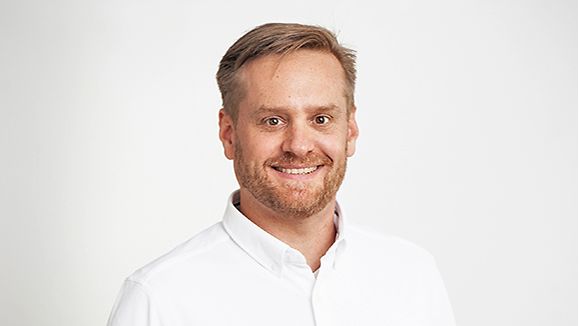Healthcare
Life Sciences - Healthcare News | October 2023
Innovative start-ups are booming in Germany's attractive life sciences sector.
Oct 09, 2023
- Health apps enjoy increased popularity
- AI doctor's letters thing of the future
- Digital diary for mental health treatment
- Aachen start-up hopes to increase organ donor availability
- Diagnostics from a drop of blood
- Exoskeletons for surgeons
- German-Swiss medtech secures Swiss funding
- Berlin healthtech start-up receives EUR 5.9 million seed funding
Health apps enjoy increased popularity
More than 31 percent of Germans use health apps according to a recent survey conducted by Civey on behalf of eco, the association of the internet sector in Germany. Popular apps include those used for exercise and dietary management, sleep behaviors and mindfulness.
AI doctor's letters thing of the future
Artificial intelligence technologies could soon be used to generate medical doctor letters to patients according to the Fraunhofer Institute for Intelligent Analysis and Information Systems IAIS. Around 150 million medical practitioner letters are written every year in Germany, tying up precious resources that could be better used elsewhere. The institute is developing an app based on a combination of algorithms and natural language processing (NLP) AI. A new white paper "Natural Language Processing in the Medical Sector" outlines the numerous opportunities available to medical practictioners and hospitals when using NLP technologies. The Healthcare Analytics Team at Fraunhofer IAIS is working closely with several university hospitals to develop possibilities for information extraction from documents.
Digital diary for mental health treatment
Berlin start-up Recovery Cat has developed a crisis protocol app in the form of a digital diary to help mental health patients document the course of their illness and efficacy of medication prescribed. The start-up claims that the app strengthens outpatient psychiatric treatment through personalized therapy follow-ups and improved therapeutic data. The platform promotes therapeutic collaboration between patients with mental health disorders including schizophrenia, bipolar disorder and recurrent depression and their treatment providers.
Aachen start-up hopes to increase organ donor availability
Aachen start-up Vivalyx has developed a solution to increase organ donotion interventions by raising the vitality and number of donor organs. The company has developed a new preservative solution that it believes can improve expected beneficial clinical transplantation outcomes. The solution improves organ preservation on ice and enhances the "pumping" in both cold and warm solutions, thereby potentially increasing the availability of donor organs. Organ donor demand continues to grow in Europe, despite organ donations falling 6.9 percent in the last year according to the German Organ Transplantation Foundation. The Omnisol solution has performed favorably in preclinical trials, being able to extend the storage time for kidneys to at least 24 hours. Subject to authorization approval processes, the company hopes to enter the market by the end of 2024.
Diagnostics from a drop of blood
A team of researchers at the Leibniz Institute of Photonic Technology (IPHT) is using raman spectroscopy and AI for diagnostic purposes. According to the Leibniz team, 99 percents of results - obtained within hours - match those of conventionally tested blood samples that are incubated for days in an incubator. The method means that a single drop of blood is enough to distinguish in real time between virus, fungus and bacterium in the event of an illness. The develpment could represent a revolution in diagnostics and a life-saving development, as it also provides a solution to the contemporary antibiotic resistance crisis where more and more bacteria are resistant to common antibiotics.
Exoskeletons for surgeons
Hellstern Medical has developed the world's first sensor-controlled exoskeleton for surgeons. Developed for multidisciplinary use in the operating room, the noac ("no ache") exoskeleton allows surgeons to carry out surgery without physical pain and fatigue. According to the Baden-Württemberg-based company, 75 percent of all surgeons suffer from musculoskeletal disorders (caused by pain- and fatigue-inducing operating postures), with 40 percent taking pain medication to alleviate pain. The sensor-controlled system optimally adjusts to all body dimensions, thereby relieving the leg muscles and the upper body by up to 100 percent. By reducing pain and fatigue, Hellstern Medical believes that it can improve surgeries for both patients and surgeons alike.
German-Swiss medtech secures Swiss funding
German-Swiss medtech Berlin Heals has raised 5 million Swiss francs for the further development of its cardiac therapy. The latest financing round attracted new investors including Fumedica, a specialist provider of cardiac surgery and invasive cardiology. The company is currently seeking CE certification and FDA approval following positive pilot patient tests.
Berlin healthtech start-up receives EUR 5.9 million seed funding
Berlin-based healthtech start-up Likeminded has closed a EUR 5.9 million seed funding round. Investors in the round include Holtzbrinck Digital and Heartcore Capital. Likeminded aims to become Europe's leading mental health platform. Founded in 2020, the company's digital platform offers personalized support for corporate employees to prevent overwork and burnout.

